-
 Bitcoin
Bitcoin $114400
0.68% -
 Ethereum
Ethereum $3550
2.48% -
 XRP
XRP $3.001
4.99% -
 Tether USDt
Tether USDt $0.9999
0.01% -
 BNB
BNB $757.6
1.46% -
 Solana
Solana $162.9
1.07% -
 USDC
USDC $0.9998
0.00% -
 TRON
TRON $0.3294
0.91% -
 Dogecoin
Dogecoin $0.2015
2.46% -
 Cardano
Cardano $0.7379
2.01% -
 Stellar
Stellar $0.4141
8.83% -
 Hyperliquid
Hyperliquid $37.83
-1.91% -
 Sui
Sui $3.454
0.76% -
 Chainlink
Chainlink $16.62
3.53% -
 Bitcoin Cash
Bitcoin Cash $554.6
2.84% -
 Hedera
Hedera $0.2486
3.91% -
 Ethena USDe
Ethena USDe $1.001
0.00% -
 Avalanche
Avalanche $21.95
3.34% -
 Toncoin
Toncoin $3.563
-2.85% -
 Litecoin
Litecoin $112.7
2.65% -
 UNUS SED LEO
UNUS SED LEO $8.977
0.13% -
 Shiba Inu
Shiba Inu $0.00001232
1.85% -
 Uniswap
Uniswap $9.319
2.93% -
 Polkadot
Polkadot $3.632
1.38% -
 Monero
Monero $307.2
2.36% -
 Dai
Dai $0.9997
-0.03% -
 Bitget Token
Bitget Token $4.340
0.91% -
 Pepe
Pepe $0.00001048
1.07% -
 Cronos
Cronos $0.1348
3.26% -
 Aave
Aave $261.5
1.93%
How can digital artworks in the Metaverse be traded through NFT?
Metaverse digital art trades via NFTs, using blockchain for ownership verification and cryptocurrencies for transactions; various marketplaces exist, each with unique features, requiring users to understand blockchain tech, wallets, and legal considerations.
Mar 06, 2025 at 01:06 am
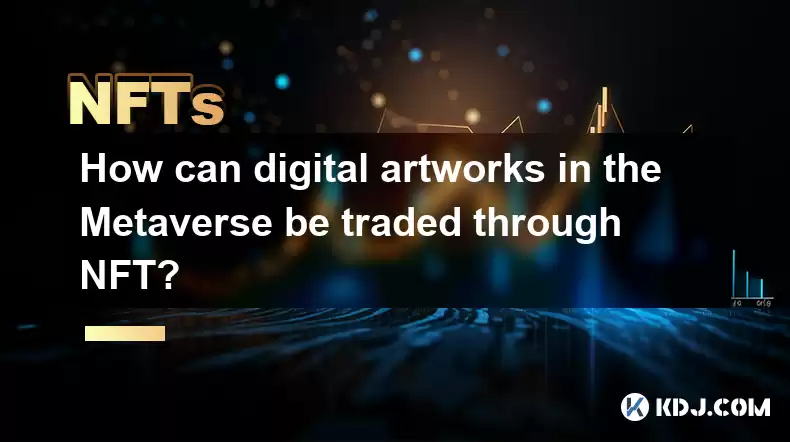
Key Points:
- NFTs (Non-Fungible Tokens) are the primary mechanism for trading digital artworks in the Metaverse.
- The process involves minting the artwork as an NFT on a blockchain, listing it on a marketplace, and then facilitating the sale via cryptocurrency.
- Various platforms and marketplaces cater to different needs and audiences, offering diverse functionalities.
- Understanding blockchain technology, cryptocurrency wallets, and NFT marketplaces is crucial for successful trading.
- Legal and copyright considerations are vital aspects to consider before entering this space.
How Can Digital Artworks in the Metaverse Be Traded Through NFT?
The Metaverse, a persistent, shared, 3D virtual world, has become a fertile ground for digital artists. However, the unique nature of digital art presents challenges to traditional trading methods. This is where Non-Fungible Tokens (NFTs) step in, providing a solution for establishing ownership and facilitating the buying and selling of unique digital assets.
NFTs, cryptographically secured tokens residing on a blockchain, represent the ownership of a specific digital item. This immutability is key to establishing verifiable ownership of digital artworks within the Metaverse. Unlike physical art, which can be easily replicated, an NFT provides a unique, verifiable certificate of authenticity for a digital piece.
The process of trading digital artwork in the Metaverse via NFTs typically involves several steps. First, the artist needs to mint their artwork as an NFT. This involves creating a digital file of the artwork and uploading it to a platform that supports NFT creation. This process often involves a transaction fee, usually paid in cryptocurrency.
Once minted, the NFT is then listed on a marketplace. Many platforms specialize in NFT trading, each with its own fees, features, and user base. These marketplaces operate similarly to online auction houses or e-commerce sites, but with the added layer of blockchain security guaranteeing ownership. Choosing the right marketplace is crucial depending on the type of artwork and target audience.
The sale itself is facilitated through cryptocurrency. Buyers use cryptocurrency wallets to hold and transfer funds. Once a buyer purchases an NFT representing the digital artwork, the ownership is transferred on the blockchain, reflecting the change of ownership in a secure and transparent manner. This transaction is recorded on the blockchain, providing a permanent record of the sale.
Understanding different blockchain networks is crucial. Ethereum is currently the most popular blockchain for NFTs, but others, like Solana and Tezos, offer alternatives with varying transaction fees and speeds. The choice of blockchain often depends on the marketplace used and the artist's preferences.
Cryptocurrency wallets are essential for both artists and buyers. These digital wallets store the cryptocurrency needed for transactions and hold the purchased NFTs. Different wallets offer varying levels of security and functionality, so choosing a reputable and secure wallet is crucial. Security best practices, such as using strong passwords and enabling two-factor authentication, should always be followed.
The legal landscape surrounding NFTs and digital artwork is still evolving. Issues surrounding copyright, intellectual property rights, and licensing agreements need careful consideration. Artists should ensure they have the necessary rights to their artwork before minting and selling it as an NFT. Similarly, buyers should understand the implications of purchasing an NFT, particularly regarding its usage rights.
Common Questions:
Q: What are the different NFT marketplaces available for trading Metaverse digital art?
A: Several platforms cater to different needs. Popular options include OpenSea, Rarible, SuperRare, and Foundation. Each offers unique features, fees, and communities. The best choice depends on the type of artwork and the artist's target audience.
Q: What cryptocurrencies are commonly used for NFT transactions?
A: Ethereum (ETH) is the most widely used cryptocurrency for NFT transactions. However, other blockchains like Solana (SOL) and Tezos (XTZ) are gaining traction and support NFT transactions with their native tokens.
Q: How secure are NFT transactions?
A: NFT transactions are generally secure due to the immutability of blockchain technology. However, the security of individual wallets and marketplaces is crucial. Using reputable wallets and marketplaces and following best security practices minimizes risks.
Q: What are the potential risks involved in trading Metaverse digital art via NFTs?
A: Risks include scams, market volatility, and legal uncertainties surrounding copyright and intellectual property. Thorough research and understanding of the space are essential to mitigate these risks. Furthermore, the value of NFTs can fluctuate significantly, impacting the return on investment.
Q: How can I learn more about NFTs and Metaverse art trading?
A: Numerous online resources, including articles, tutorials, and communities, provide information on NFTs and Metaverse art. Engaging with the community and staying updated on industry news are vital for staying informed about this rapidly evolving space.
Disclaimer:info@kdj.com
The information provided is not trading advice. kdj.com does not assume any responsibility for any investments made based on the information provided in this article. Cryptocurrencies are highly volatile and it is highly recommended that you invest with caution after thorough research!
If you believe that the content used on this website infringes your copyright, please contact us immediately (info@kdj.com) and we will delete it promptly.
- Cryptocurrency, Altcoins, and Profit Potential: Navigating the Wild West
- 2025-08-04 14:50:11
- Blue Gold & Crypto: Investing Disruption in Precious Metals
- 2025-08-04 14:30:11
- Japan, Metaplanet, and Bitcoin Acquisition: A New Era of Corporate Treasury?
- 2025-08-04 14:30:11
- Coinbase's Buy Rating & Bitcoin's Bold Future: A Canaccord Genuity Perspective
- 2025-08-04 14:50:11
- Coinbase's Buy Rating Maintained by Rosenblatt Securities: A Deep Dive
- 2025-08-04 14:55:11
- Cryptos, Strategic Choices, High Returns: Navigating the Meme Coin Mania
- 2025-08-04 14:55:11
Related knowledge
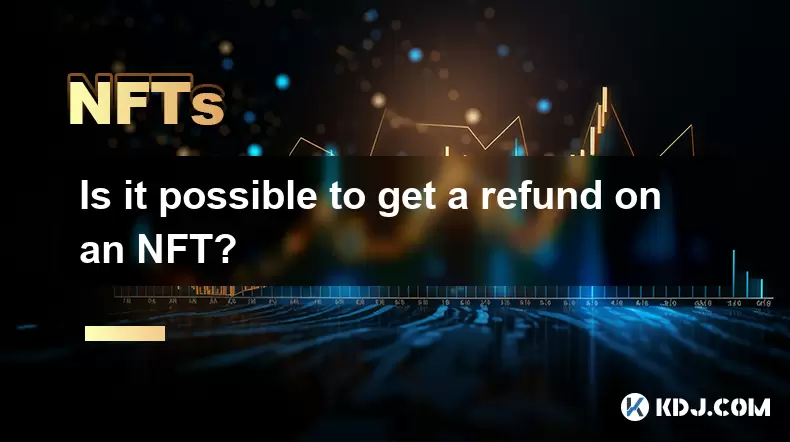
Is it possible to get a refund on an NFT?
Jul 21,2025 at 08:35pm
Understanding NFT Transactions and RefundsWhen you purchase an NFT (Non-Fungible Token), the transaction is typically recorded on a blockchain, making...
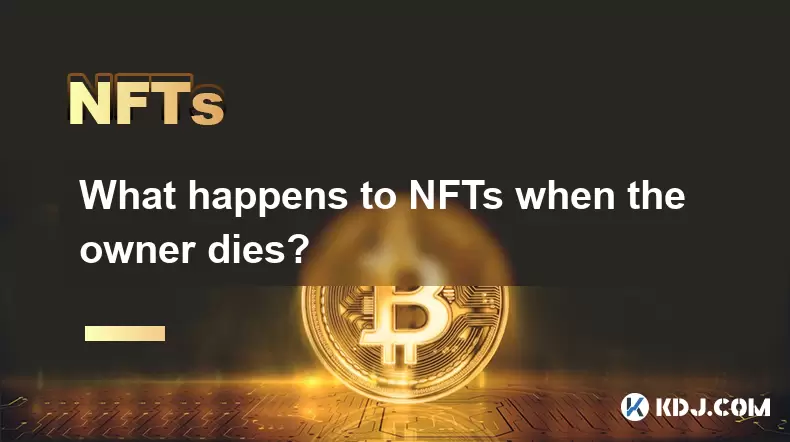
What happens to NFTs when the owner dies?
Jul 22,2025 at 02:43pm
Legal Ownership and Digital AssetsWhen an individual owns NFTs, the question of what happens to these assets upon their death is a pressing one. NFTs ...
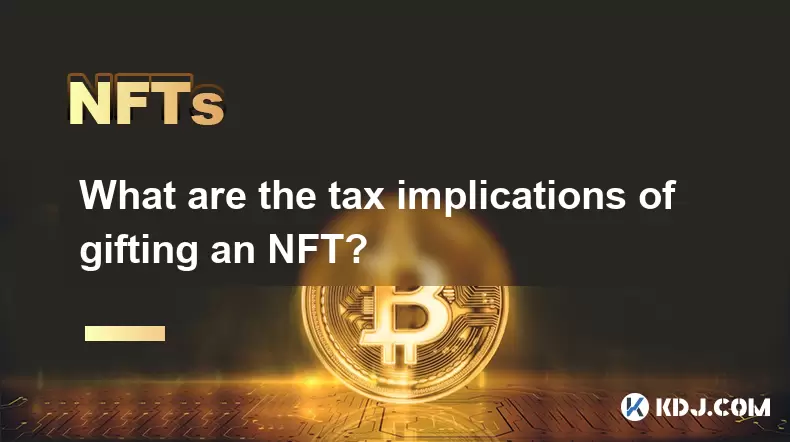
What are the tax implications of gifting an NFT?
Jul 19,2025 at 04:21am
Understanding the Basics of NFT GiftingGifting a Non-Fungible Token (NFT) involves transferring ownership from one individual to another without recei...
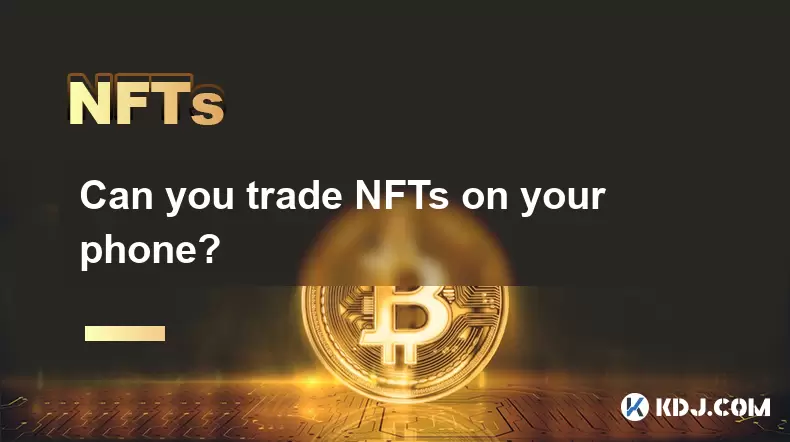
Can you trade NFTs on your phone?
Jul 18,2025 at 04:29am
Trading NFTs on Mobile DevicesYes, you can trade NFTs on your phone, and the process has become increasingly streamlined thanks to a variety of mobile...
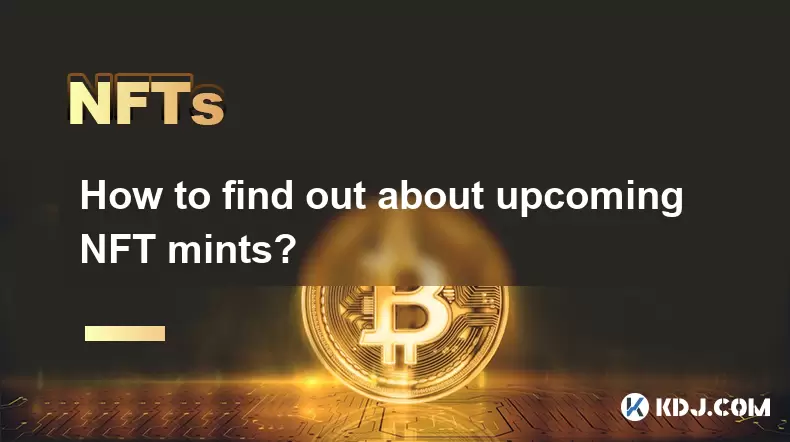
How to find out about upcoming NFT mints?
Jul 18,2025 at 11:50am
Exploring NFT Minting OpportunitiesUnderstanding the landscape of upcoming NFT mints is crucial for collectors, investors, and creators who wish to st...
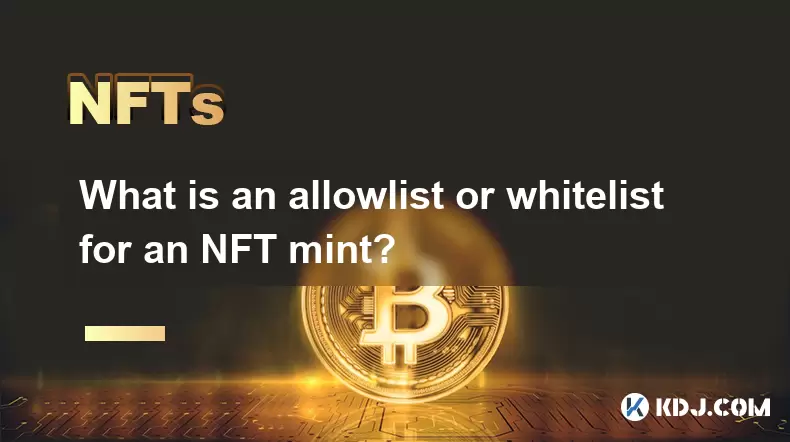
What is an allowlist or whitelist for an NFT mint?
Jul 20,2025 at 07:14pm
Understanding the Concept of an Allowlist for NFT MintingAn allowlist, also commonly referred to as a whitelist, is a mechanism used in the NFT mintin...

Is it possible to get a refund on an NFT?
Jul 21,2025 at 08:35pm
Understanding NFT Transactions and RefundsWhen you purchase an NFT (Non-Fungible Token), the transaction is typically recorded on a blockchain, making...

What happens to NFTs when the owner dies?
Jul 22,2025 at 02:43pm
Legal Ownership and Digital AssetsWhen an individual owns NFTs, the question of what happens to these assets upon their death is a pressing one. NFTs ...

What are the tax implications of gifting an NFT?
Jul 19,2025 at 04:21am
Understanding the Basics of NFT GiftingGifting a Non-Fungible Token (NFT) involves transferring ownership from one individual to another without recei...

Can you trade NFTs on your phone?
Jul 18,2025 at 04:29am
Trading NFTs on Mobile DevicesYes, you can trade NFTs on your phone, and the process has become increasingly streamlined thanks to a variety of mobile...

How to find out about upcoming NFT mints?
Jul 18,2025 at 11:50am
Exploring NFT Minting OpportunitiesUnderstanding the landscape of upcoming NFT mints is crucial for collectors, investors, and creators who wish to st...

What is an allowlist or whitelist for an NFT mint?
Jul 20,2025 at 07:14pm
Understanding the Concept of an Allowlist for NFT MintingAn allowlist, also commonly referred to as a whitelist, is a mechanism used in the NFT mintin...
See all articles

























































































